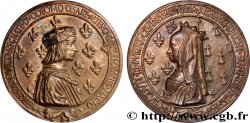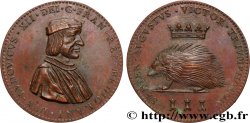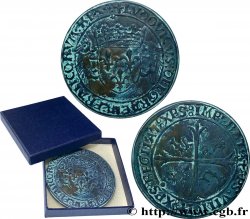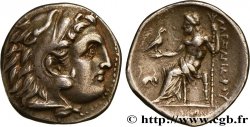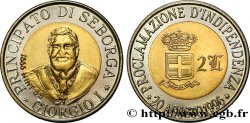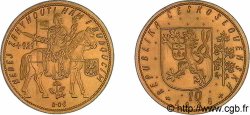Live auction - fme_963128 - LOUIS XII Médaille, Louis XII
Чтобы принять участие в торгах, вы должны войти в систему и стать подтвержденным участником аукциона. Войдите, чтобы сделать ставку. Ваш аккаунт будет подтвержден в течение 48 часов. Не ждите до закрытия торгов, чтобы зарегистрироваться.Сделав ставку на данный товар, вы вступаете в юридическое соглашение на покупку выбранного товара и нажатием кнопки «Сделать ставку» подтверждаете принятие вами условий интернет-аукционов cgb.fr.
Ставка может бить сделана только в полном эквиваленте евро. Торги закроются согласно времени, указанному в описании товара, все ставки, сделанные после закрытия торгов, учитываться не будут. Не следует откладывать предложение вашей ставки до последнего момента, так как система может не успеть обработать вашу заявку, и ваша ставка не будет принята. Более детальную информацию вы найдёте здесь: FAQ по интернет-аукционам.
Все ставки победителей подлежат комиссии 18%.
Все ставки победителей подлежат комиссии 18%.
| Оценить : | 500 € |
| Цена : | 570 € |
| Максимальная предлагаемая цена : | 900 € |
| Конец торгов : | 10 December 2024 17:18:47 |
| Участников : | 6 Участников |
Тип Médaille, Louis XII
Дата: n.d.
Металл: gold
Диаметр: 35,5 mm
Ориентация осей монеты: 12 h.
Вес: 5,35 g.
Век: lisse
Пуансон: sans poinçon
Комментарии о состоянии
Traces de nettoyage et monture en 6 endroits. Présence de quelques fines rayures. Flan légèrement voilé
Лицевая сторона
Аверс: легенда: FELICE. LVDOVICO. REGNAT. DVODECIM. CESARE. ALTERO. GAVDET. OMNIS. NACIO+.
Аверс: описание: Buste habillé, portant le collier de l’ordre de Saint Michel, et couronné de profil à droite, sur fond de fleur de lis. Lion de Lyon à l’exergue dans la légende.
Аверс: перевод: Chaque nation se réjouit sous le règne du second César, le fortuné Louis XII.
Обратная сторона
Реверс: легенда: ANÉPIGRAPHE.
Реверс: Описание: Croix fleuronnée dans un quadrilobe cantonné de fleur de lis.
Комментарий
Il s’agit ici de deux tirages en or incus, “collés” l’un à l’autre par le biais d’une soudure que l’on perçoit avec netteté à 6 et 12 heures, ainsi qu’à 10 heures.








 Cообщить об ошибке
Cообщить об ошибке Распечатать страницу
Распечатать страницу Отправить мой выбор
Отправить мой выбор Задать вопрос
Задать вопрос Consign / sell
Consign / sell
 Информация
Информация